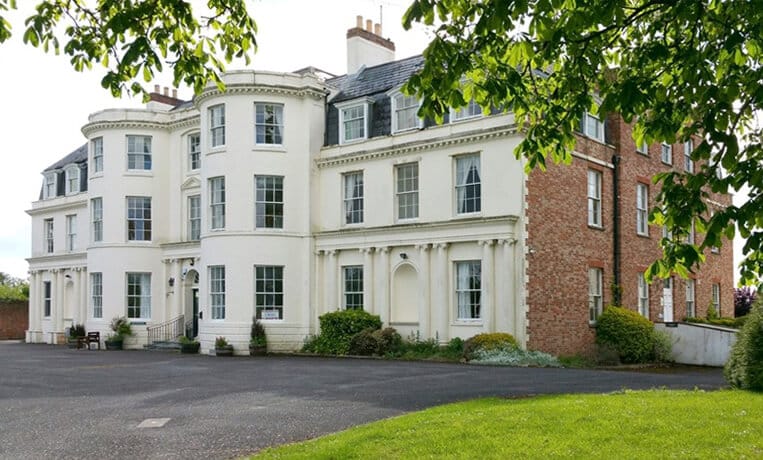Drug and alcohol addiction is a problem that is commonly hidden in Hackney.
Many people believe substance misuse has declined in North London over the last decade.
However, many thousands of people in the area continue to live their lives addicted to these burdensome substances.
This is aggravated by the lack of support from public organisations that have had their budgets cruelly dismantled over the last few years.
At Rehab 4 Addiction, we work to connect the most effective rehab centers in Hackney and the UK with those who need their services most.

Interventions have been used to help people with addiction seek further rehabilitative treatment for almost as long as addiction treatment became a more prominent area of modern healthcare.
Although they are commonly used with addiction to alcohol, they can be used for almost any type of addiction.
In general, an intervention in Hackney will take place with the presence of a counsellor who mediates the conversation between those affected by an individual’s addiction and the individual themselves.
The older form of intervention is often cited to be confrontational and does not have a high success rate, with only around 30% of individuals will go on to seek further rehabilitative treatments.

However, a more modern method of intervention – CRAFT (Community Reinforcement and Family Training) – is far more successful.
Around 70% of individuals treated with CRAFT go on to seek further care.
The CRAFT method takes a more invitational approach, encouraging the strengthening of communications between the two parties, helping them to build stronger relationships and understand the triggers, cravings and everyday struggles that an individual may be facing.

Before beginning any rehabilitative treatments in Hackney, it is useful to understand the full extent of their addiction, as well as confirm it in an official sense.
If an individual is unsure if they are addicted, or if their friends and family around them are questioning this fact, then it may be useful to conduct an alcoholism questionnaire.
One of the most popular methods is the CAGE questionnaire.
It is used by addiction specialists and psychiatrists during their initial assessment to help gauge an individual’s relationship with addiction.
Standing for the four main areas of assessment, this is an easy-to-use and quick method for assessing an individual’s addiction.
The four areas of assessment are as follows:
These are all elements that an individual suffering from addiction may show differences in compared to those who are not addicted.
For example, someone suffering from addiction may begin to conceal their behaviours, becoming irritated when people begin to pry into their personal life.
In these instances, it is even more important that these individuals seek further care through treatment in Hackney as addiction is a disease that worsens over time, meaning that the sooner help is sought, the more likely it is that an individual will make an efficient and long-term recovery.

There is no set cost when it comes to residential care in Hackney.
In general, drug and alcohol rehab in Hackney will be different for every individual.
Consider the following: someone who has a long history of heroin abuse will require far different care from someone seeking help for short-term cannabis usage, both in terms of severity of care as well as duration.
The cost will also depend on the specific centre in Hackney chosen, as each will have different facilities, resources, staff and treatments offered.
In general, the main differences in cost come down to the type of room selected for accommodation.

For example, those who opt to stay in a multi-occupancy room (residing with other patients) can expect to pay a far smaller fee than those who choose to stay in a single-occupancy room.
Another major difference comes from the level of care and upkeep that these Hackney centres require.
The costs of cleaning and supporting a multi-occupancy room are generally far less than those required for a single-occupancy room.
Please bear in mind that other factors may also affect the cost of residential rehabilitation in Hackney such as insurance and location.
This will all be discussed before an individual enters a dedicated centre in Hackney and no decision will be made without the full understanding and consent of the individual.

As mentioned above, insurance may come into play when considering the full cost of residential rehabilitation in Hackney, but it is always important to check this with the insurance provider.
An insurance provider could be through work, or through private healthcare.
In either case, it is important to get in contact with those managing the insurance plan in order to ascertain exactly which parts of rehab may be covered.
Some plans cover all types of healthcare, meaning that residential rehabilitative care will be covered, but others are more specialised within a certain area of healthcare or omit certain services.
It is vital to understand the difference and which you may be covered by.
If you require further help with this concept or have any additional questions relating to funding and the overall cost of rehab, please do not hesitate to contact the Rehab 4 Addiction team on 0800 140 4690.

In general, there are many rehabilitative services in Hackney available through the NHS.
This is a popular choice for many people to begin their rehabilitative journey, meaning that it is a high-in-demand service.
For this reason, there are numerous services on offer in Hackney through the NHS, but they can be difficult to access.
Firstly, there are often long waiting lists for most services beyond local support groups and individual counselling sessions.
This can be incredibly dangerous when considering addiction or dependency, as these can become exponentially worse if left untreated.

Additionally, some types of rehabilitative care in Hackney require a large amount of funding.
Because the NHS is a public-funded service, giving the go-ahead for these services is not always possible, and can sometimes require the individual to present their case to a governing or funding body unrelated to the NHS in order to secure funding.
Residential rehabilitation is notoriously difficult to access through the NHS.
This is why many choose private rehab over the services provided by the NHS.
To learn more about the options available, call the Rehab 4 Addiction team on 0800 140 4690.

As with the cost of rehabilitation, there is no set duration for residential care.
As with the example used earlier in this article, it is not hard to see how different individuals will have different requirements for rehabilitation.
Because of this, every individual case will require a specialised and tailored rehab plan whilst in residential care.
This is evident in the differences in duration of stays that Rehab 4 Addiction has monitored since its beginning.
For the detoxication stage of rehab, an individual may progress through withdrawal symptoms in as little as 5 days.
This is more common for those with a shorter history of drug or alcohol usage and is not recommended in most cases.

In general, Rehab 4 Addiction suggests a recommended stay of 28 days.
This includes a full detoxification session (anywhere from 7-14 days) as well as a following 3 weeks of additional rehabilitative treatments such as therapy and rehabilitative activities.
This is the recommended amount of time to spend in a residential rehab centre as it allows the individuals to fully engage with the range of treatments and therapies on offer to them, letting them make the most of a safe and supporting environment.

NHS or council-funded options have been briefly described in the previous paragraphs, but it is important to consider the further differences between the two main options when it comes to seeking rehabilitative care.
As touched on before, council-funded treatments are often the first-place people think to seek help for their addiction struggles.
This is mainly due to the convenience of these services – they are often close to home and free of charge.
However, because of this, council-funded services often come with lengthy waiting lists.

Additionally, individuals may not be able to get access to the specific help that they need, either due to the lack of funding or the lack of resources available to these council-funded service providers.
Alternatively, individuals may choose to seek help through private services, often resulting in a referral to residential care centres.
Dedicated rehabilitation centres have been proven to be the most effective and efficient form of treatment when it comes to treating addiction.
This is due to the high level of care delivered, often by addiction specialists, professional counsellors and expert staff.
For some people, the only drawbacks may be the cost and location, both of which are discussed in this article.

In general, there are two categories of rehabilitative treatment: inpatient and outpatient.
These are the main ways treatments are categorised during the recovery process.
Inpatient and outpatient care are outlined below, with some examples of what to expect from each:
This is one of the first choices that individuals will have to make when considering rehabilitative care in Hackney, so it’s important to consider the differences carefully and what may be most suitable for this individual’s needs.

Detoxification refers to the process of removing the harmful build-up of toxins and chemicals in the body as a result of addiction.
Often, this results in withdrawal effects as the body is no longer receiving the drugs that it has been primed to consume.
Especially if someone has a long history of addiction, these effects can be extremely damaging to the individual’s health as well as posing a risk to their life.
Some of the most common withdrawal effects of alcohol are listed below:
Most of the above effects during detoxification are physical; alcohol is a physically addictive drug.
This means that an alcohol withdrawal can be especially dangerous.
In some cases, it may be necessary to use pharmacological interventions such as prescribing Librium.
This helps to alleviate the negative physical effects that the individual may experience during withdrawal, fighting cravings and allowing them to focus more wholly on following rehabilitative treatments.
This is a key part of recovery from alcohol addiction at rehab in Hackney.

Cocaine is one of the most commonly used recreational drugs in the UK, including in Hackney.
In the year of 2020, 2.6% of adults aged 16-59 reported usage of the drug.
Second only to cannabis in popularity, cocaine can cause serious health risks.
In the short-term, costuming cocaine can result in hypersensitivity and behavioural changes.
With long-term abuse, however, individuals can risk a psychological crash, often leading to further mental health issues such as depression and paranoia.
Cocaine is not physically addictive like alcohol or heroin, meaning that withdrawal is not life-threatening, but it is nonetheless unpleasant.
After detoxification, individuals are recommended to continue rehabilitative treatment for further care, often taking part in counselling, group activities and holistic treatments.
The effects of cocaine are far more psychologically addictive than other substances, meaning that special focus and care is needed in this area to avoid the risk of serious changes to the quality of life.

As a physically addictive drug, heroin rehabilitation can be more complicated.
However, there is a process in which individuals can progress through to increase their chances of success and efficiency of treatment.
Though not as common in Hackney or the rest of the UK, heroin still remains one of the most addictive drugs in the world.
Heroin is a class A drug, deriving from morphine – a powerful painkiller.
When consumed, heroin provides the user with an extremely euphoric high, contributing strongly to its highly addictive nature.
With long-term use, individuals risk a serious impact on their mental functioning, affecting the way they go about their everyday lives and activities.
In addition, heroin abuse can increase the chances of health complications such as liver disease, seizure frequency, and heart problems.
When withdrawing from heroin, especially for those with a longer history, it is often recommended to progress through tapering.
This is a process in which individuals transition from heroin to heroin substitutes, such as buprenorphine and naltrexone.
Tapering makes heroin withdrawal far safer, often seriously reducing the harmful negative impacts.
From this, individuals are then often referred to further rehabilitative treatments such as those focused on improving mental and physical health.

Cannabis is the most popular drug consumed in the UK, with 7.8% of 16-59-year-olds reporting usage in 2020.
With a range of psychoactive effects, cannabis remains one of the most popular recreational drugs of all time, as well as having more and more research conducted into its medical purposes.
Some of the main effects experienced during cannabis consumption are listed below:
Like cocaine, cannabis is not physically addictive, and the effects are mainly psychological.
There is no official ‘cannabis detox’ though it is important for the individual to slowly cut down on the amount they are consuming with the support of addiction specialists.
In general, those with addiction to cannabis may be more likely to begin outpatient care, often remaining at home while taking part in rehabilitation treatments, but it is possible to enter a residential centre in Hackney if necessary.
In most cases, individuals will be given access to and contact with an addiction counsellor, helping them to create a personal plan in which they can cut down on their cannabis usage whilst finding alternative activities and hobbies to help them return to everyday life.

A medication called Naltrexone can help you to reduce your drinking and cravings by blocking the part of your brain that experiences euphoria from alcohol.
A study by Dr Gillian W Shorter on treatments for alcoholism found that patients who were given the medication naltrexone had a higher chance of a successful outcome.
Even after you’ve detoxed, you will still be in recovery, and may face cravings and triggers.
Coping mechanisms will be vital to keep you on track.
Dennis Donovan has studied alcoholism recovery and discovered that going to aftercare groups will make you three times more likely to remain in recovery.

Though not every centre or rehabilitation service provider in Hackney will have the same resources available, there are some common treatments that have been proven to be the most effective and efficient when treating addiction.
In general, these therapies and treatments have been proven through research, showing the positive effects that they can have on individuals’ lives, even when they have a long history of serious drug or alcohol abuse.
Some of the most common treatments at a drug and alcohol rehab in Hackney are listed below:
Contact Hackney Council to learn more about what is on offer.

When treating addiction, it is important to treat both the physical and mental effects that it can have on an individual.
This is known as dual diagnosis and refers to the theory of addiction as a product of underlying mental health conditions.
Often, addiction is associated with disorders such as anxiety, depression, bipolar disorder, and schizophrenia, though there are many other disorders that can be co-occurring.
Through Rehab 4 Addiction’s referral service, all the service providers on offer follow this approach to rehabilitative care, meaning that both mental and physical effects are treated to give you the best chance of lasting success.

Relapse prevention training is an essential part of rehabilitation, as it prepares the individual for life outside and after their treatment programme.
In general, a relapse prevention plan refers to a procedure developed by the individual in the event of a potential relapse.
Though not every individual may experience relapse, having a plan available can provide peace of mind in the event of an emergency.
During the creation of the plan, individuals must keep in mind that recovery is a gradual process and is part of their personal development and story, meaning that there are no shortcuts.
Progress is not always evident immediately, and this should be kept in mind when considering the practicality and reality of a relapse prevention plan.

As a rough guide, here are some of the features that a plan could include:
Individuals are also recommended to keep a physical copy or one that is accessible at all times – perhaps on a phone note – in the event that it may be needed.
By following these steps, and fully committing to the idea of rehabilitation and long-term recovery, individuals will make far better progress.
Relapse is not an inevitable part of recovery, though creating a plan is essential to provide an emergency option and peace of mind.

Residential rehabilitation is not suitable in every case of addiction or for every individual.
There are countless reasons why someone may not choose to take the residential rehabilitation route, including
In any event, there are some alternatives, often referred to as outpatient treatments (as mentioned previously):

For more information on rehab facilities and treatment in Hackney, contact Rehab 4 Addiction on 0800 140 4690.
We offer a free assessment that will help guide you toward the perfect facility.
With the right support, there is no addiction that cannot be beaten.
 Addiction is often largely misunderstood, with many incorrectly labelling it as a lack of willpower, a moral failing or something that happens after a series of bad choices. When, actually, addiction is much more complex. It can be shaped by a number of things, such as trauma, mental health, the environment you grew up in […] .... Read More
Addiction is often largely misunderstood, with many incorrectly labelling it as a lack of willpower, a moral failing or something that happens after a series of bad choices. When, actually, addiction is much more complex. It can be shaped by a number of things, such as trauma, mental health, the environment you grew up in […] .... Read More